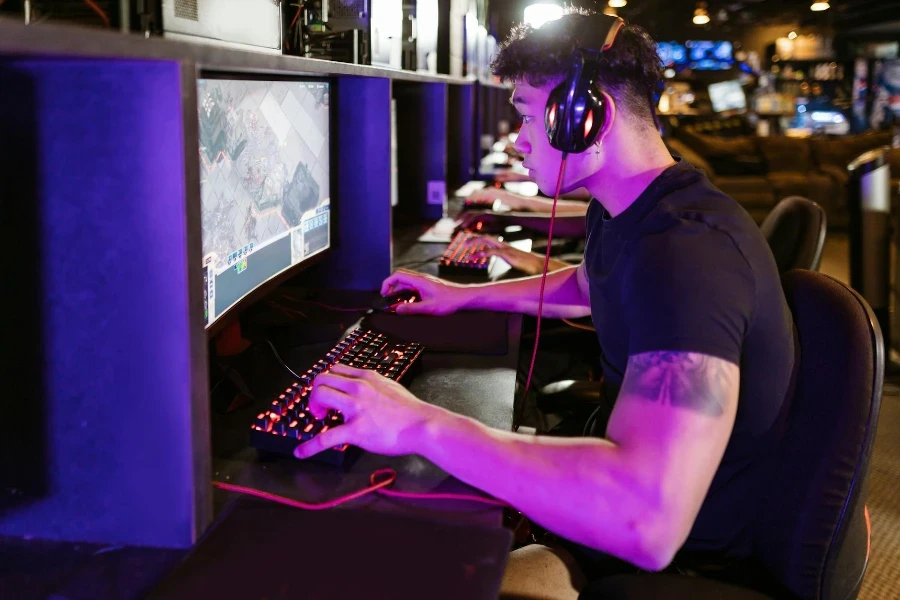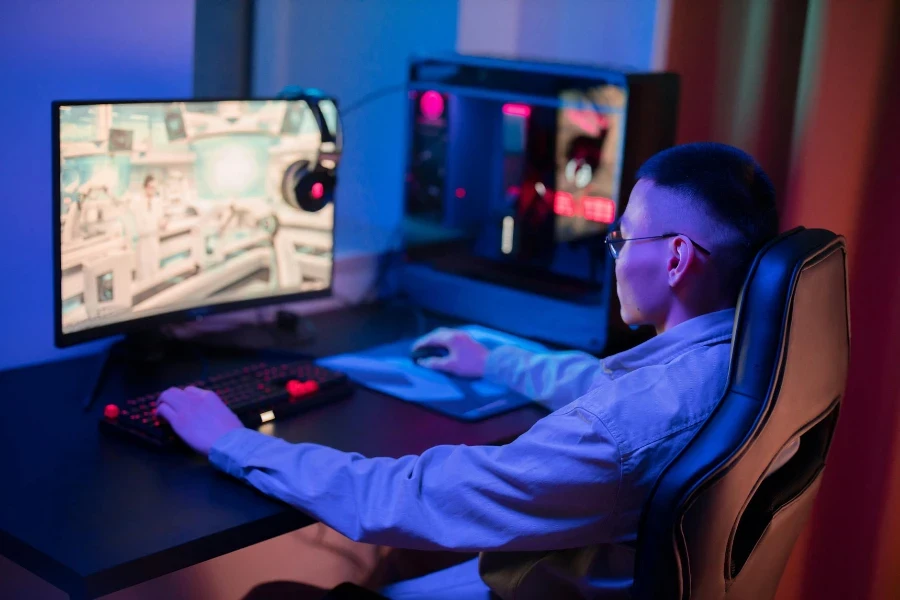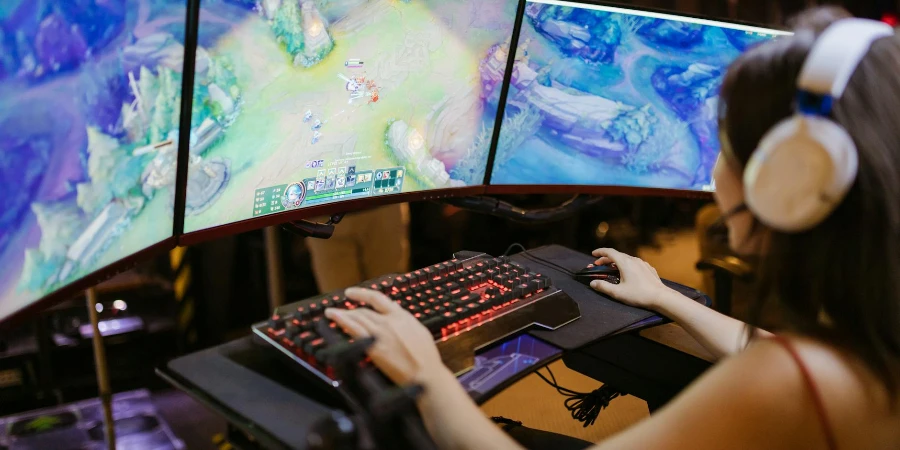Gaming PCs stand at the pinnacle of computer technology, offering unparalleled performance and an immersive gaming experience. This guide will explore the intricacies of gaming PCs, how they function, their advantages and disadvantages, and provide essential tips for selecting and utilizing your gaming rig to its fullest potential.
Table of Contents:
– What is a gaming PC?
– How does a gaming PC work?
– Benefits and drawbacks of a gaming PC
– How to choose a gaming PC
– How to use a gaming PC
What is a gaming PC?

Gaming PCs are high-performance computers specifically designed to handle the rigorous demands of modern video games. Unlike standard PCs, gaming PCs are equipped with powerful CPUs, high-end graphics cards, substantial RAM, and fast storage solutions to deliver smooth, detailed, and responsive gameplay. They often feature advanced cooling systems to manage the heat generated by these components, ensuring stability during extended gaming sessions. Gaming PCs can be custom-built or preassembled, offering gamers the flexibility to tailor their systems to their specific gaming needs and preferences.
How does a gaming PC work?

The heart of a gaming PC lies in its central processing unit (CPU) and graphics processing unit (GPU). The CPU handles the overall system operations and the non-graphics-related gaming tasks, while the GPU is responsible for rendering the game’s visuals. These components work in tandem with the system’s RAM, which temporarily stores game data for quick access, and the storage drive, which holds the game files. Gaming PCs also rely on a robust power supply unit (PSU) to feed energy to these power-hungry components and may include specialized cooling systems, such as liquid cooling, to dissipate the heat they generate.
Benefits and drawbacks of a gaming PC

The primary benefit of a gaming PC is its superior performance, which translates to higher frame rates, better graphics, and shorter loading times, enhancing the overall gaming experience. Additionally, gaming PCs are highly customizable, allowing users to upgrade individual components to keep up with the evolving demands of new games. However, this performance and flexibility come at a cost, as gaming PCs can be significantly more expensive than standard PCs or consoles. They also require more space and can consume more electricity, especially with high-end configurations.
How to choose a gaming PC

Selecting the right gaming PC involves considering several key factors, including your budget, the types of games you want to play, and your performance expectations. Start by determining the minimum hardware requirements for your favorite games, then aim for a system that exceeds these specifications to ensure future-proofing. Pay special attention to the GPU and CPU, as these will have the most significant impact on your gaming experience. Additionally, consider the system’s upgradability, cooling solutions, and the quality of the build to ensure a durable and long-lasting gaming rig.
How to use a gaming PC

To get the most out of your gaming PC, it’s essential to keep your system’s drivers and game software up to date. Regular updates can offer performance improvements, bug fixes, and new features. Optimizing your PC’s settings, such as adjusting the graphics settings in games and ensuring your operating system is fine-tuned for gaming, can also enhance performance. Finally, investing in quality peripherals, like a high-resolution monitor, responsive keyboard, and precise mouse, can significantly improve your gaming experience.
Conclusion:
Gaming PCs offer the ultimate gaming experience, with their superior performance, customization options, and the ability to play games at the highest settings. While they come with a higher price tag and demand more maintenance than consoles or standard PCs, the benefits they provide are unmatched for serious gamers. By understanding how gaming PCs work, their pros and cons, and how to choose and use one, you can embark on an unparalleled gaming journey tailored exactly to your preferences and needs.




